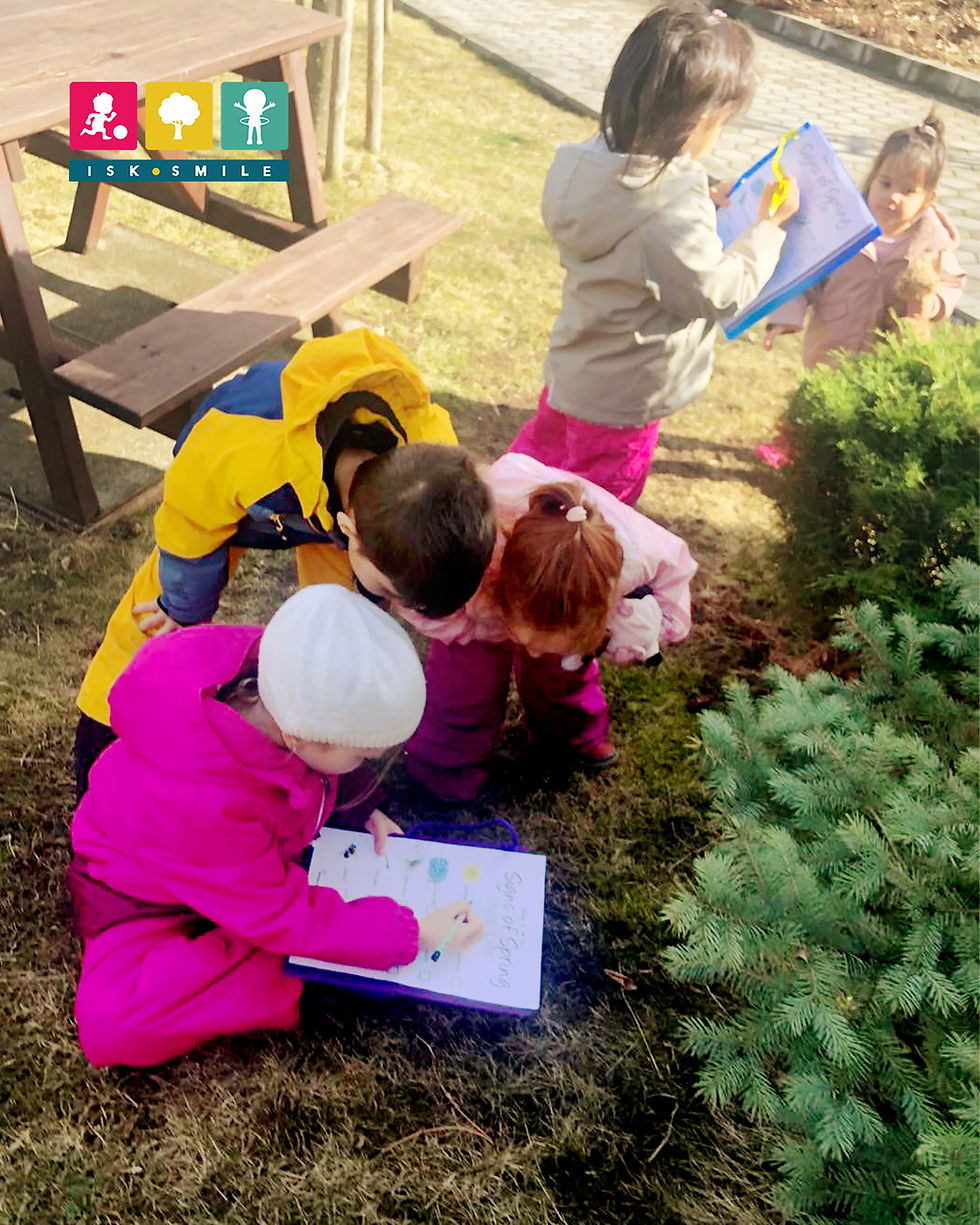The power of storytelling in early childhood
- Elina Cherkezova-Veleva
- Mar 5, 2025
- 2 min read

Storytelling has been a cornerstone of human communication for centuries. From ancient myths to bedtime stories, narratives help us make sense of the world, foster connections, and ignite the imagination. For young children, storytelling is much more than entertainment—it plays a crucial role in their cognitive, linguistic, and emotional development. At ISK-Smile, storytelling is woven into daily activities to encourage curiosity, creativity, and a love for learning.
Developing Imagination and Creativity
When children listen to a story, their minds become active landscapes of possibilities. Unlike visual media, storytelling allows them to paint their own mental pictures, strengthening their imagination and creativity. At ISK-Smile, teachers use engaging storytelling techniques, such as expressive voices, gestures, and interactive questioning, to bring stories to life.
Building Strong Language Skills
A child’s early years are the most crucial for language acquisition. Through storytelling, they are exposed to new vocabulary, sentence structures, and the rhythm of language. Listening to stories helps children understand how words fit together, making it easier for them to develop their speaking and writing skills.
At ISK-Smile, storytelling is incorporated into daily English lessons, reinforcing the language in a natural, engaging way. Children listen to classic fairy tales and modern stories, repeating key phrases, answering questions, and acting out parts of the story. Through repetition and participation, they build confidence in expressing themselves in English.
Additionally, we integrate storytelling into music lessons, where songs and rhymes help reinforce language comprehension.
Enhancing Critical Thinking and Problem-Solving
Beyond vocabulary and imagination, storytelling helps children develop essential critical thinking and problem-solving skills. Many stories present challenges or dilemmas that require solutions, encouraging children to think about consequences and different perspectives.
Fostering Emotional Intelligence and Empathy
Storytelling also plays a significant role in emotional development. Through stories, children learn about feelings, relationships, and social behaviors. By identifying with characters, they begin to understand different perspectives, fostering empathy and emotional intelligence.
Creating a Love for Learning
Perhaps the most significant benefit of storytelling is its ability to create a lifelong love for learning. When children are engaged in a well-told story, they experience the joy of discovery and curiosity. Storytelling makes lessons more memorable and enjoyable, transforming learning from a chore into an adventure.
At ISK-Smile, Story-Based Learning is used across various subjects. By linking knowledge to engaging narratives, children develop a deeper understanding of the subjects they explore.
Storytelling is much more than just a fun activity—it is a powerful educational tool that shapes young minds in countless ways. From boosting language skills to enhancing creativity, critical thinking, and emotional intelligence, the impact of storytelling in early childhood is profound.
At ISK-Smile, we believe in the power of stories to inspire, educate, and connect. By incorporating storytelling into daily activities, we help children grow into imaginative thinkers, confident communicators, and empathetic individuals. Through every tale told and every adventure imagined, we are shaping the learners of tomorrow.





Comments